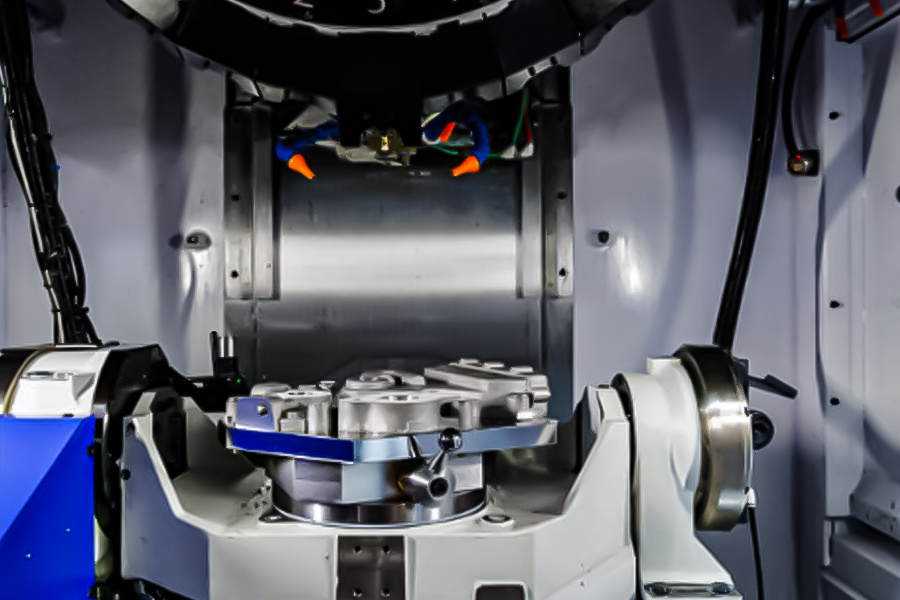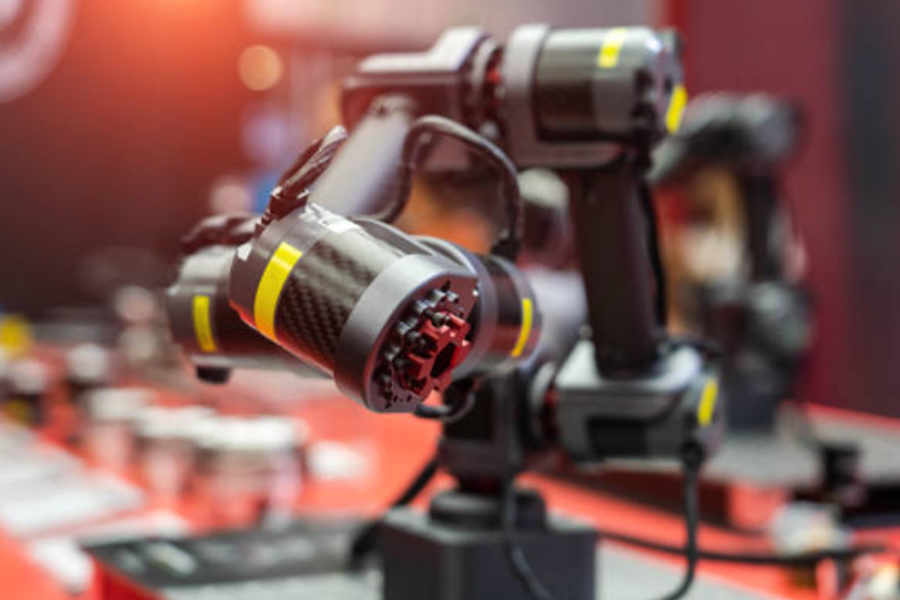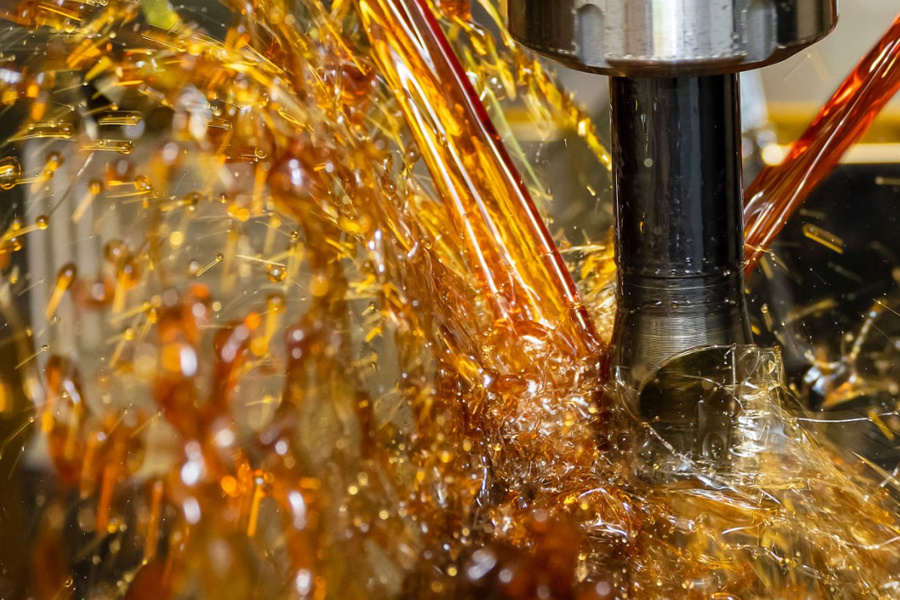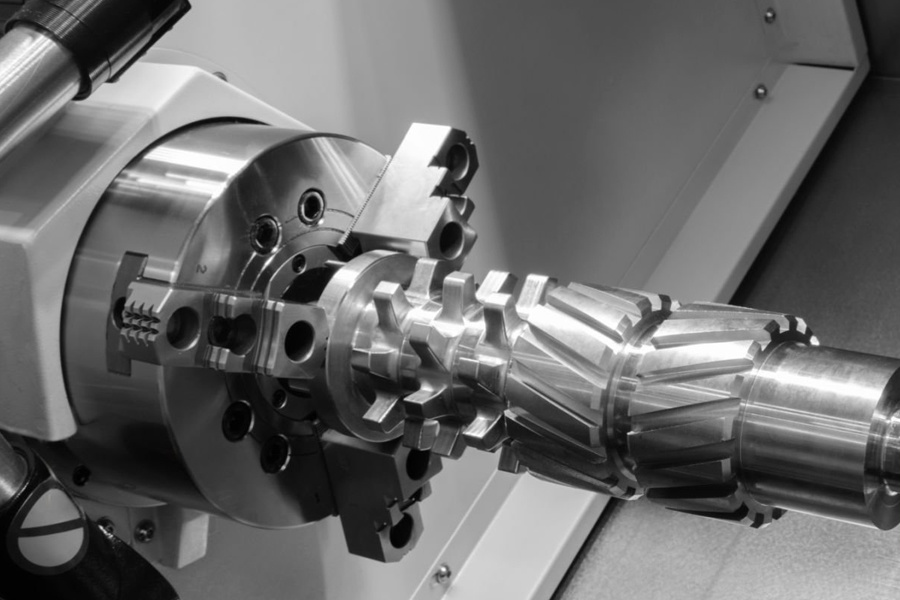Adaptive control technology is the core driver of precision intelligent processing
Release time:
2025-04-19
Adaptive control technology plays a core role in precision intelligent processing, building an intelligent closed loop and achieving precise quality control. Multi-dimensional sensors are used to monitor material property fluctuations, tool status and cutting parameters in real time, pre-process data and input them into the composite control model, and LSTM time series analysis is used to predict processing trends.
In the manufacturing industry transformation period with rapid technological iteration, precision intelligent processing technology has become a strategic commanding point in the global manufacturing industry competition. As the core supporting technology, Adaptive Control (AC) is reshaping the quality control paradigm of precision processing by building an intelligent closed loop of "perception-decision-execution".
Intelligent control principle: intelligent center that dynamically responds to the processing environment
Adaptive control technology builds an intelligent control system driven by real-time data. Its core mechanism is to collect 200+ key parameters such as material property fluctuations (such as hardness and toughness changes), tool status (wear, vibration frequency), cutting parameters (cutting force, feed speed) during the processing process at a millisecond frequency through a multi-dimensional sensor network (covering force-sensitive, temperature-sensitive, displacement sensors, etc.). After the collected data is pre-processed by noise reduction algorithms such as Kalman filtering, it is input into a composite control model integrating neural networks and fuzzy logic, and the processing trend is predicted through LSTM time series analysis. Finally, the servo system dynamically adjusts the cutting speed (±15% adjustment range), feed rate (0.001mm level accuracy), cutting depth (micrometer level control) and other process parameters.
Take titanium alloy medical implant processing as an example. When the material hardness fluctuates by ±15% due to heat treatment differences, the system can automatically adjust the cutting speed from 120m/min to 90m/min, and reduce the feed rate from 0.1mm/r to 0.08mm/r, while maintaining the surface roughness Ra≤0.4μm, extending the tool life by 23%. This dynamic control capability breaks through the limitations of traditional fixed parameter processing and builds an adaptive immune system for the processing process.
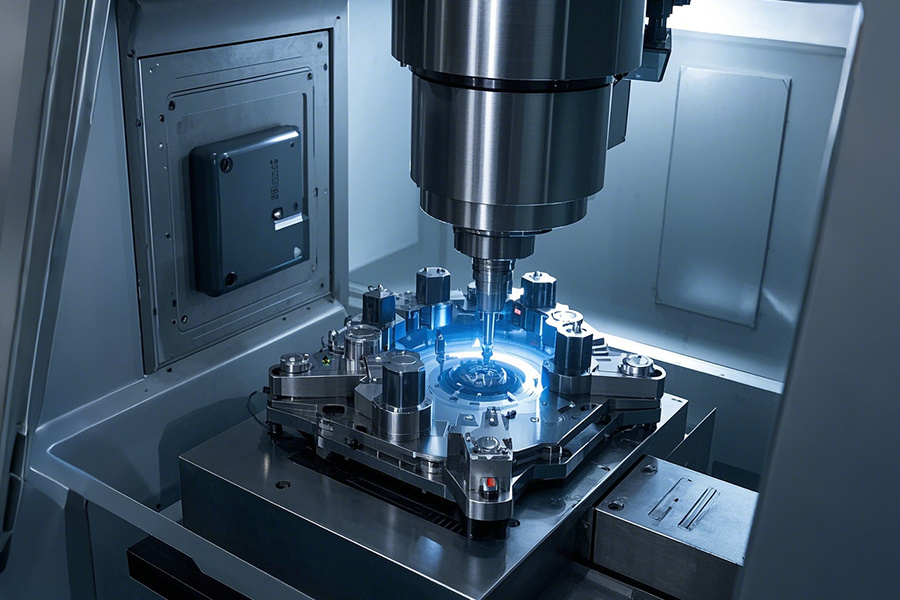
Technical advantages: full-dimensional empowerment of precision machining
1. Revolutionary improvement in quality control
In the field of medical equipment manufacturing, the precision error needs to be controlled within the strict requirement of ±5μm. The adaptive control system improves the dimensional accuracy stability by 40% and the surface roughness consistency by 35% through real-time compensation of machine tool thermal deformation (the influence of 0.01℃ temperature change on precision can be monitored) and tool wear compensation (real-time measurement of wear based on acoustic emission signals). Application data of an orthopedic implant manufacturer shows that the qualified rate of geometric tolerance of joint prostheses has increased from 82% to 98.7%, significantly reducing the risk of implant surgery caused by insufficient precision.
2. Dual optimization of efficiency and cost
By establishing an intelligent optimization model for processing parameters, the system can find the optimal balance between material removal rate and tool life. In the processing of dental zirconia ceramic blocks, for blanks with different sintering densities, the system automatically improves the processing efficiency by 25%-35%, while reducing the tool loss cost by 32%. Calculations by a medical device manufacturer show that adaptive control technology reduces the processing time of a single surgical instrument by 18%, reduces the annual tool procurement cost by 27%, and reduces the overall production cost by 22%.
3. Enhanced robustness of complex working conditions
Facing the processing scenarios of multi-variety and small-batch medical parts, the system has the ability to quickly migrate processes. When switching from stainless steel scalpel processing to titanium alloy stapler processing, there is no need to manually re-adjust the parameters. The system can complete parameter self-learning within 3 processing cycles, realize seamless switching processing of parts of different materials and structures, significantly improve the stability of multi-variety mixed-line production, and shorten the production switching time by more than 60%.
Industry application: Intelligent practice of medical precision processing
1. Deep cultivation of technology of Airy Precision Machinery
As an industry benchmark enterprise, Airy Precision Machinery has built a three-level adaptive control system: the bottom layer uses Siemens S120 servo system to realize real-time adjustment of processing parameters, the middle layer uses the self-developed iAC intelligent controller to perform multi-sensor data fusion, and the top layer relies on the industrial Internet platform to realize digital twin modeling of the processing process. In the processing of orthopedic implants, the tool life prediction model (prediction accuracy of 92%) and vibration suppression algorithm (reducing the cutting vibration amplitude by 65%) developed by it stabilize the processing accuracy of complex surfaces at ±3μm, reaching the IT5 level accuracy of ISO 286-1 standard, meeting the high-precision matching requirements of artificial joints.
2. Precision control of dental precision manufacturing
In the field of dental CAD/CAM, for the precision machining of zirconia ceramic blocks (hardness 800-1200HV), the adaptive control system monitors the spindle power changes (resolution 0.1kW) to identify the material density difference in real time and dynamically adjust the milling strategy. When machining dental all-ceramic crowns, the system controls the edge tightness within 15μm and the surface roughness Ra≤0.2μm, which is significantly better than the industry standard (25μm, Ra≤0.4μm). After being applied by a certain invisible orthodontic company, the processing qualification rate of bracket positioning holes increased from 89% to 99.2%, greatly reducing the rework rate of appliances caused by precision problems.
3. Precision guarantee of high-end surgical instruments
In the processing of minimally invasive surgical instruments, for the precision drilling of stainless steel capillaries with a diameter of ≤1mm, the system reduces the needle breakage rate from 12% in traditional processing to 1.5% through axial force dynamic compensation technology (control accuracy ±0.5N). When processing the complex surface of the laparoscopic forceps, the real-time contour detection based on the visual sensor and the adaptive adjustment of the feed speed make the surface fit error less than 5μm, ensuring the reliability of the instrument in high-frequency opening and closing, providing hardware guarantee for precision medicine.
Development Outlook: Building a New Ecosystem of Intelligent Processing
With the deep integration of Industry 4.0 and digital twin technology, adaptive control technology is evolving from single device control to workshop-level intelligent scheduling. There will be three major development trends in the future: first, deep integration with machine vision to achieve full-scene visual monitoring of the processing process; second, virtual debugging technology based on digital twins to shorten the processing parameter optimization cycle by more than 70%; third, collaborative control of edge computing and cloud AI to build a cross-regional processing technology knowledge base. It is estimated that by 2030, the penetration rate of adaptive control technology in the field of precision medical processing will exceed 85%, promoting medical equipment manufacturing to move towards zero-defect production.
As the core enabling technology of intelligent manufacturing, adaptive control is redefining the quality boundary of precision processing. From the microscopic perception of material properties to the precise control of processing parameters, this technology not only improves manufacturing efficiency, but also builds flexible manufacturing capabilities for the future. As more companies like Airy Precision Machinery deepen their technology applications, adaptive control will surely become the core engine to promote the high-quality development of the medical equipment manufacturing industry and provide more reliable precision manufacturing guarantees for human health.
Related Products
CNC machining multi-axis linkage accurately processes tooth profile and journal size
CNC machining technology plays a core role in the machining of precision gears and shaft parts, achieving high-precision micron-level precision, significantly improving the wear resistance and fatigue resistance of parts, and ensuring the stable operation and high quality of the transmission system. In modern industrial manufacturing, its application in automobile manufacturing, precision instruments, industrial equipment and other fields has significantly improved the overall quality.
2025-06-28
Automotive precision parts processing: Use high-precision gears to drive the future of new energy
The development of new energy vehicles has put forward higher requirements for the precision of parts. The breakthrough of micron-level manufacturing technology has laid the foundation for the stable operation of the power system. High-precision gears are innovatively applied in the energy conversion system of new energy vehicles, which reduces friction loss, improves transmission efficiency and prolongs gear life.
2025-06-18
The manufacturing process of precision accessories in modern medical equipment, especially the use of core processing technologies such as CNC turning and laser micro-welding to achieve precise manufacturing in complex medical scenarios. These technologies not only require precise dimensional control, but also must meet biocompatibility and long-term stability.
2025-06-14
Five-axis machining centers have gradually become the core equipment for the manufacture of complex parts due to their multi-dimensional dynamic machining capabilities. Compared with four-axis equipment, five-axis machining centers significantly improve the machining accuracy and surface quality of special-shaped structural parts through multi-angle synchronous cutting, shortening the production cycle.
2025-06-11


